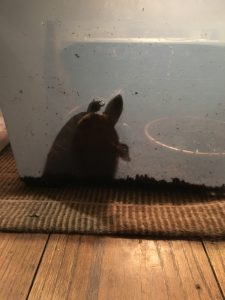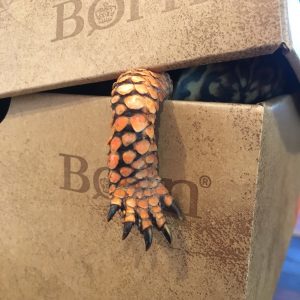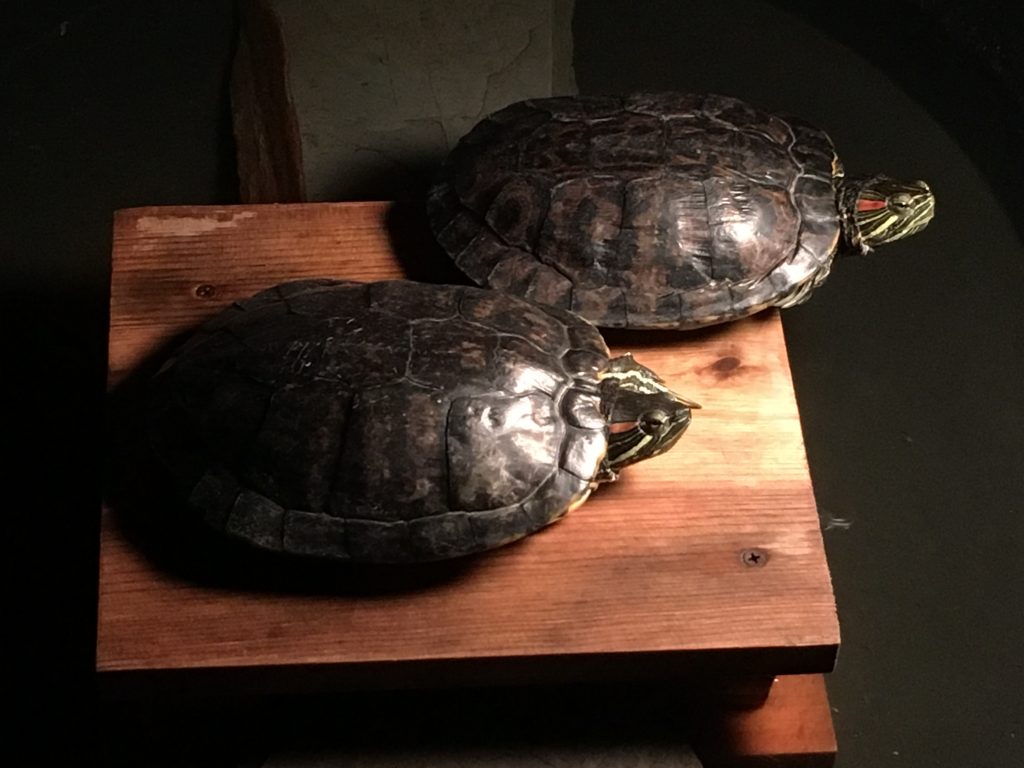Connecticut's Wildlife Regulations and How They Apply to Turtles
It’s an all-too common story: someone out fishing, boating or hiking finds a turtle and thinks, “What a cute animal! It would make a great pet.” Without giving it another thought, they take it home…and away from its population, which is more than likely already struggling to survive.
What’s wrong with this picture? Everything. Aside from turtles being challenging to care for and outliving their captors’ interest in them, 5 out of our state’s 8 resident turtle species are on the list of Endangered, Threatened or Special Concern Species. Each and every one of them needs to remain in the wild if their population is to survive. That’s just one reason why there are laws to protect against this scenario.
Illegal collection and trade of native turtles is a major, global conservation crisis that also directly affects local turtles. It exacerbates the decline of populations already impacted by road mortality, disease, nest predation, habitat loss, etc. The Connecticut Department of Energy and Environmental Protection (DEEP) and conservation law enforcement take this issue seriously and do enforce both state and federal law, impose corresponding fines/penalties, and confiscate illegal specimens.
Laws regulating herps—that is, reptiles and amphibians—can be complicated, and trying to make sense of them can be really confusing. But questions about legality come up all the time when it comes to turtles in human possession. So we got together with the CT DEEP to clarify answers to the most common FAQs, below. For those who want to delve deeper into specific regulations, this link will take you to the main listing of state regs; you’ll need to search through the corresponding links to find specific regulations: https://eregulations.ct.gov/eRegsPortal/Browse/RCSA.

Can I keep a wild turtle as a pet?
No. First and foremost, it is illegal for the public to possess native wildlife. Only licensed facilities such as zoos, nature centers, and educational or research facilities are exempt from this law. In order for anyone to legally keep any turtle species that occurs in the wild in Connecticut, no matter how long he or she has had the turtle(s), he or she must be able to produce documentation proving that the animal was legally acquired from a captive population, such as a turtle purchased from a qualified breeder. Violation of this law is a Class 3 misdemeanor and punishable by fines and/or jail time.
I have kept a wild turtle for years. Now that I know it’s illegal, what should I do?
No. Most importantly, DO NOT RELEASE that animal! Even if you have kept its tank clean and the turtle appears healthy, the turtle may have picked up disease while in captivity and could infect wild populations if released. Contact a rehabilitator, who can take and evaluate your turtle and work with the DEEP to find an appropriate placement for it.
Can pet turtles of common species, like painted turtles, be rehomed, since they can’t be released?
No. It’s a popular misconception that common native turtle species—snapping, painted or musk turtles—can be kept as pets. If there is no proof of the animal being legally purchased, passing it on to another member of the public would simply render the new owner liable for the same illegal possession. That is why we and the DEEP try to place the turtle in a facility that is allowed to own a native species with no paperwork showing it was legally acquired.

Is the law different for Snapping turtles?
As native wildlife, snappers fall under the general rules stated above. They are often picked up as adorable, tiny hatchlings but quickly outgrow their welcome, outlive must humans, and are capable of inflicting a damaging bite within months of hatching. In continuance of a 300+ year history, however, there is still a season for snapping turtles in our state, but only for personal consumption; a law was passed in 2018 outlawing the sale of snapping turtles. The taking of snappers during this season is subject to a bag limit and size restrictions and, depending on the method of capture, may require permitting or licensing.
Snapping turtle eggs cannot be collected or nests disturbed. For more information, use the following link: https://portal.ct.gov/DEEP/Hunting/Snapping-Turtle-Regulations.
Can I collect wild turtles if I don’t intend to keep them?
No. It is absolutely illegal to buy, sell, exchange or to have in your possession with the intent to do so any wild turtles or their eggs. The collection, trade or trafficking of our native turtles is one of the greatest and fastest-growing threats to their survival.
Are rehabilitators allowed to accept a captive native turtle, even though it’s not injured?
Yes. Even though they’re not technically licensed facilities like zoos or nature centers, knowledgeable rehabbers serve as appropriate halfway houses for previously captive wildlife. The DEEP routinely asks people to bring wild ‘pets’ to experienced rehabbers to evaluate the health and condition of the animal and to temporarily hold it. In the case of rare or listed species, the agency is closely involved in the placement/evaluation of the animal(s).
 The closest turtle rehabilitator to me is in another state. Can I take turtles there?
The closest turtle rehabilitator to me is in another state. Can I take turtles there?
It depends. Transferring protected native wildlife across state lines is prohibited by The Lacey Act, a landmark U.S. environmental protection law passed in 1900. Under this law, the interstate transport of wildlife is a federal crime, punishable by fines of up to $5,000 (individual) or $10,000 (corporation) and/or up to six months in prison. The law applies primarily to listed species, however; taking common species out of state for legitimate purposes, such as rehab, is generally accepted in Connecticut.
What are the laws surrounding Red Eared Sliders?
Depending on whom you ask, sliders—common pet store turtles–have become either an invasive or a naturalized species in Connecticut, thanks to owners who unfortunately release them into the wild when they can’t find new homes for them. These tough turtles are actually native to the Southern United States, but resilient enough to thrive here in New England. They have become such a problem that a 2018 law made it illegal to import, sell or release red-eared sliders in Connecticut. There is an exception for animals kept for educational or research-related purposes, and for animals with distinct, aberrant color patterns (e.g. albino, amelanistic). These exceptions still require compliance with Department of Agriculture guidelines for maintaining records of the purchaser, and include the condition that the turtles cannot be released. It is absolutely fine to rehome them, however. As one of the most abandoned pets in the country, they need all the adoption help they can get!



